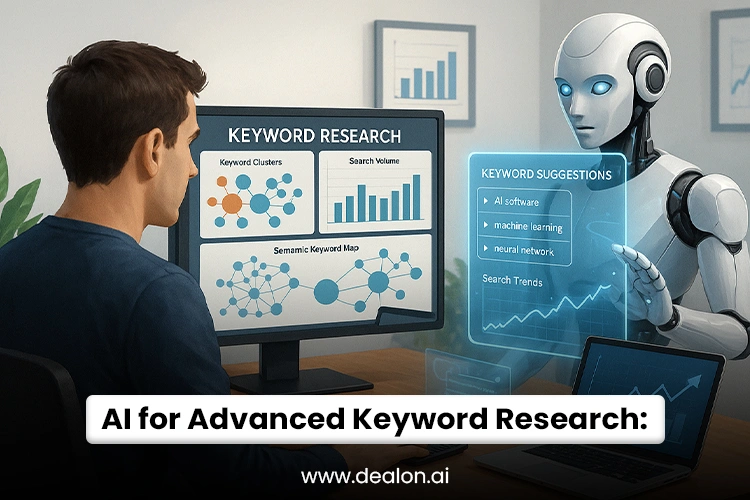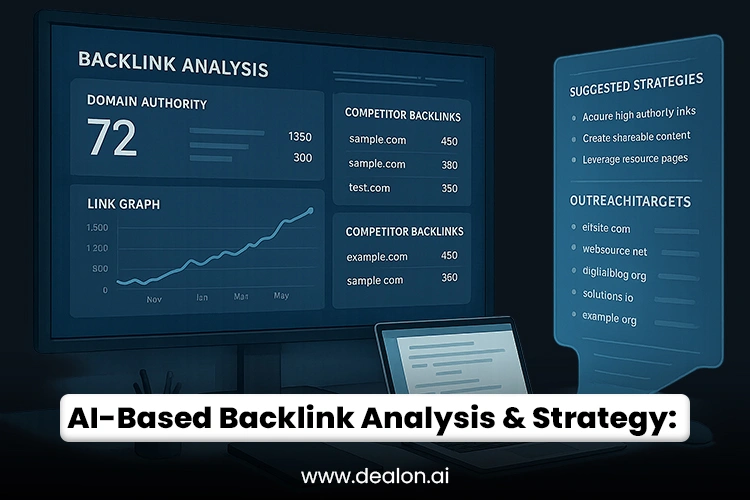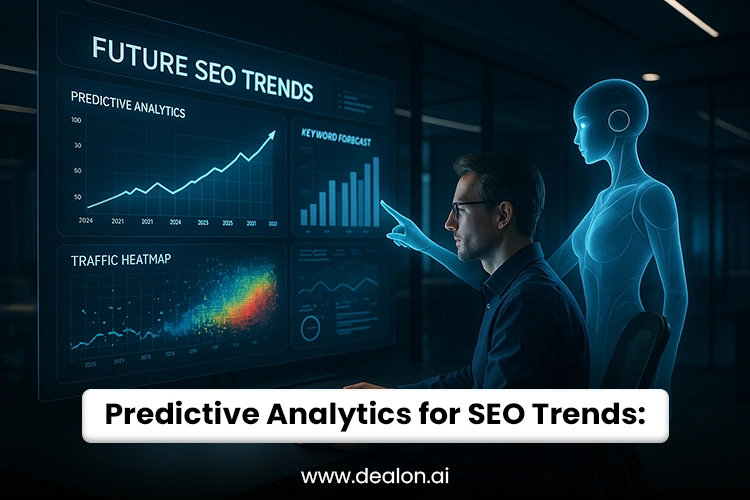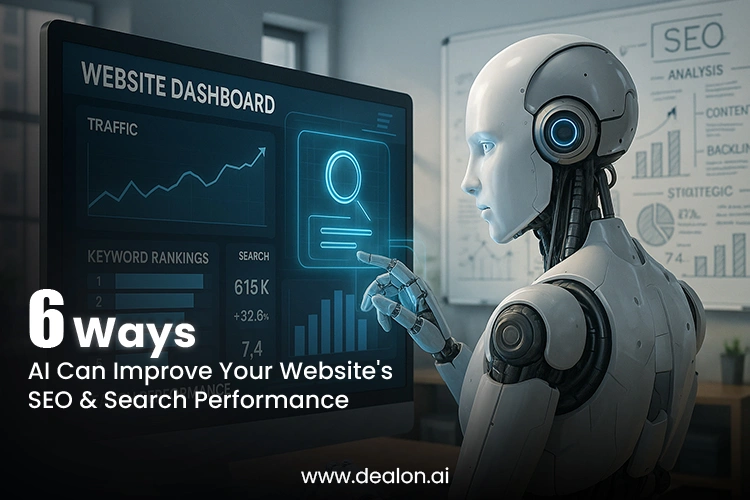The use of AI in processing and mining recent data enables businesses to deliver the highest degree of personalization, making market segmentation more complex and flexible. This methodology allows companies to manage marketing approaches that readily adapt to evolving consumer trends. Market segmentation is rapidly moving from straightforward demographic methods to a deeper grasp of consumer traits, enabling firms to predict better what they will need and supply specific answers.
Although essential, current approaches cannot reveal the breadth of factors determining customer decisions. Consequently, organizations generally select their target audiences using only a little information. Methods using only basic characteristics like age and income did not thoroughly explore the underlying factors that drive people’s choices.
Because of this, organizations can generate personalized marketing assets that enhance conversion success. Comprehensive awareness of impending and actual shifts in demand, combined with correctly predicted evolutions in customer behavior, allows companies to allocate resources effectively and make their campaigns more efficient.
AI also supports executing personalized initiatives, outperforming the basic categories firms traditionally apply in market segmentation. Companies can now use AI to develop individualized approaches that correspond directly to each customer’s habits, preferences, and actions.
Enhanced consumer interaction emerges as an essential early success from AI-powered segmentation techniques. Danai Mrhe allows the organization to handle lots of data, making it possible to observe and act on individual customer behaviors through personalized suggestions.
GPT-based AI writing platforms guarantee the smooth appearance of primary and secondary keywords, thus naturally improving SEO standards while avoiding keyword overuse. These platforms put the user first, producing content that is easy to read and adjusting it to suit search engine parameters. In the end, AI makes it possible to optimize content more flexibly and effectively, so websites tend to rank better in search and maintain better performance than competitors.
Also Read; AI-Driven Market Segmentation: Going Beyond Demographics In 2025
How AI Can Improve User Experience (UX) to Boost SEO
Modern SEO performances are particularly impacted by how well the user experience is designed. As technological advancements affect search engines, they emphasize metrics that reveal user happiness, including the speed of page loading, responsiveness on mobile devices, and levels of site engagement. As a result, supplying a smooth and intuitive UX contributes significantly to achieving better search engine rankings. Applying new AI techniques, like machine learning and predictive analytics, has fundamentally changed how UX is improved, increasing user satisfaction and improving SEO.
AI tools can analyze large volumes of visitor data to find critical behavioral patterns helpful in optimizing websites. AI becomes useful in understanding which design features and content are most effective by analyzing key elements such as user behavior and page engagement. These findings allow for dynamic site improvements, including increased readability, navigation, and information access.
AI-generated chatbot interactions in real time reduce visitors’ likelihood of quickly leaving the site and encourage them to spend longer there, directly contributing to better SEO outcomes. Such AI solutions can suggest content or responses specific to a user’s history and interactions. Sharing tailored information increases user happiness and attracts repeat visits, which search engines consider an indicator that your site is valuable.
Implementing AI to improve user experience helps guarantee that mobile users on all devices have an equally good and smooth experience. Because these engines rely on mobile-first indexing, a site’s mobile accessibility is now essential for ranking highly in SEO. When your UX is optimized adequately with AI, search engines can tell that your site focuses on users and is thus more likely to increase your SEO performance and online presence.
AI for Advanced Keyword Research: Unlocking SEO Potential

Although keyword research forms the foundation of SEO, long-established techniques frequently fail to reveal a modern website’s most valuable keywords. Cutting-edge keyword research now depends on AI-driven tools, particularly in a digital space centered on user intent and activity. These advanced algorithms analyze search volume and provide rich insights into what motivates search behavior and engagement.
AI-fueled platforms such as Google’s RankBrain apply the power of machine learning to scrutinize immense amounts of data and spot both trending topics and recurring behavior patterns. Unlike those that only consider search volume, AI keyword research tools place greater importance on keyword intent, which reveals why users search and how they engage with web pages. As a result, marketers can choose keywords that better match what users seek and their experience over time.
AI makes it possible for keyword research solutions to uncover specific long-tail keywords with lower competition, but a great capacity to draw organic traffic that is highly relevant. In addition, these tools are particularly effective at uncovering searches formulated as questions, a factor which becomes even more beneficial as voice search persists to gain user adoption. By aiming content at question-based queries, businesses can improve how users see and enjoy their pages.
A further strength of AI in keyword research is its capacity to forecast trends before they become well-known. Search behavior patterns interpreted by AI help businesses recognize upcoming topics before they become popular so that high-ranking content can be created promptly. Companies can better tailor their content when informed by AI-driven keyword insights, thus raising organic search traffic and SEO effectiveness.
AI-Based Backlink Analysis and Strategy: Elevating SEO Performance

For years, backlinks have formed a foundation of strong SEO performance, as search engines consider them signs of a website’s authority and credibility. However, building backlinks from reputable and authoritative sources frequently proves challenging and time-consuming. By leveraging AI technology, businesses can simplify backlink campaigns and improve their position in search engine rankings.
Backlink tools powered by artificial intelligence use complex algorithms to review both existing backlinks and possible new linking chances. The tools evaluate the authority of websites linking to your page and thoroughly analyzeanalyzeeach link’s strength, relevance, and the risks posed by substandard or spammy sources. Because of AI’s exacting evaluation, the structure of your backlink profile stays healthy and follows recommended SEO standards, thereby reducing the chance of penalties from search engines.
Identifying useful links is among the most effective benefits of AI when applied to backlink strategy. AI scans the internet for influential sites in your area and can spot places where you might obtain backlinks, frequently uncovering hidden chances that manual review would miss. In addition, AI solutions allow you to keep an eye on your competitors’ backlink profiles, providing you with essential knowledge on how they build links and areas you can surpass them.
Besides simply analyzing data, AI can computerize outreach and create new relationships. Email outreach tools guided by AI allow for targeted engagement with leading sites, easing the challenge of acquiring backlinks. OD, when you regularly obtain high-quality backlinks, your domain authority grows and your website ranks better in search results, thanks to AI.
AI-Driven Technical SEO Audits: Optimizing Your Website for Highest Efficiency.
The foundation of every website’s appearance in search engine results is technical SEO, which guarantees your site is indexed correctly. Staying on top of your website’s technical infrastructure is often complicated and slow. Here, AI-driven SEO audits demonstrate their value by supplying strong solutions to efficiently discover and fix technical issues affecting your site’s performance.
These AI solutions automatically go through your website, examining each page and accurately breaking down thousands of details. Such tools can expose broken links, issues with page loading speeds, mobile usability shortcomings, and Schema markup errors. Because manual technical reviews are both slow and prone to mistakes, AI audits enable swift and precise optimization through continuous, real-time analysis.
The algorithms employed by these SEO tools can recognize and rank problems by their influence on SEO performance. Systems can alert you when critical issues, like slow pages or broken internal links, are detected and demand resolution immediately. Meanwhile, less critical issues, such as missing alt text for images, may be handled afterwards. The intelligent analysis of issues by AI enables webmasters to concentrate on the top priorities, resulting in time and resource savings.
Besides, through AI, SEO audit tools can keep an ongoing watch on your website and communicate any technical problems the moment they appear. Continuous monitoring helps ensure your website is always ahead in search engine indexing, improving total SEO performance. AI-based technical SEO techniques greatly enhance your site’s load time, user experience, and position in search engine results, leading to greater online recognition and more organic traffic.
How AI Helps Websites Enhance SEO Through Delivering a Personally Tailored Experience.
The role of AI is crucial in how companies improve their websites for search engines by concentrating on user experience. With user experience becoming a key consideration, search engines, including Google, have begun to use visitors’ behavior to determine a website’s ranking. AI tools help businesses analyze enormous amounts of user data, resulting in insights into how individuals interact, what they value, and what they anticipate on a website. Consequently, organizations are better positioned to create personalized and seamless environments for their site visitors.
Today, optimization of the user experience, including how quickly pages load, how well they display on mobile devices, and how users interact with the site, is among the key components of SEO. AI-driven methods keep these metrics current so that visitors find the site interesting. AI technology anticipates user needs, giving them suitable material, which speeds up page load and keeps users engaged. If a site loads quickly, visitors are more likely to remain interested and read its material, thus boosting its ranking in search engines.
Furthermore, AI technology adjusts the content and the site’s navigation based on what users do, so relevant content is given to them. User needs are dynamically supported by AI-based pages that modify real-time content using historical behavior. Because of this personal approach, users remain engaged longer, which cuts down on early site exits and raises the likelihood of conversions. Specifically, AI recommends products, blog posts, or services to users based on their online activity, making it more likely they will purchase and boosting a website’s SEO score.
Improving how users interact with sites on their phones is an essential function of AI. Because more users are using phones to search, Google now relies primarily on the mobile version of websites when determining search results. AI is central to ensuring websites perform smoothly on many types of devices. The capacity of AI to oversee how users interact on mobile devices and adapt images and scripts helps deliver a level of experience necessary for strong SEO.
AI can also aid in the collection of user interaction data, giving businesses a chance to refine their sites according to real-time feedback all the time. Heatmaps and AI analytics help reveal which page areas attract the most clicks, which are overlooked, and how visitors respond to individual elements. Such a feedback mechanism lets businesses implement data-based changes that lift user engagement and, as a result, help improve their SEO. A site that keeps users engaged through personalized recommendations and fast, intuitive navigation is more likely to rank highly in search results.
Predictive Analytics for SEO Trends

AI has turned predictive analytics into a significant factor in improving SEO results. AI enables organizations to make sense of extensive user data and discover previously unnoticed trends in search behavior, which helps them develop more effective SEO plans before significant shifts appear.
Intelligence systems that use predictive analytics can extract and evaluate vast data, finding trends in how users search, which content appeals to them, and upcoming algorithm developments. Because predictive analytics reveals forthcoming SEO landscape shifts, website administrators can quickly change their content, keywords, and optimization tactics. With the help of AI, you can shape your SEO tactics before those updates and market shifts are announced, staying one step ahead of the competitors.
A considerable benefit of predictive analytics is its capacity to anticipate which subjects and keywords will soon become more effective with audiences. With the help of artificial intelligence, it is possible to determine which content formats and keywords will attract users, based on examining past data, seasonal trends, and emerging user preferences. Such insight empowers you to adapt your content and site layout before widespread adoption to rank well for up-and-coming queries and themes.
AI enables you to predict algorithm changes, so you can adapt your SEO approach to match those expected shifts in your site ranks. If you use this strategy, your website maintains conformity with current SEO practices and remains adaptable in serving user requirements. Performing predictive analytics regularly strengthens your website’s SEO, draws more traffic, lifts your page ranking, and promotes continuous growth.
Conclusion
AI must form a core part of your SEO plan for continued competitiveness in today’s online market. AI offers tools to enhance your site’s SEO, help with content optimization, improve user experience, perform entry-level and complex keyword research, and keep track of backlinks. These advanced tools handle monotonous jobs, discover new optimization chances, and align your SEO with cutting-edge trends.
Real-time analysis of vast data made possible by AI empowers you to act ahead of technical SEO problems, understand competitor activities, and optimize your site for present and impending trends. In particular, predictive analytics gives you the advantage of seeing into the future, supporting you in updating your SEO strategy ahead of changes in search activity and algorithm updates.
Businesses can use AI to improve where their websites rank and deliver a great user experience. With artificial intelligence, SEO approaches boost user experience and search engine friendliness through loading speed, mobile compatibility, and tailored content. When you use AI to inform your SEO practices, your website is set up to perform well, stay visible, and maintain growth, even as the digital arena becomes ever more competitive.

